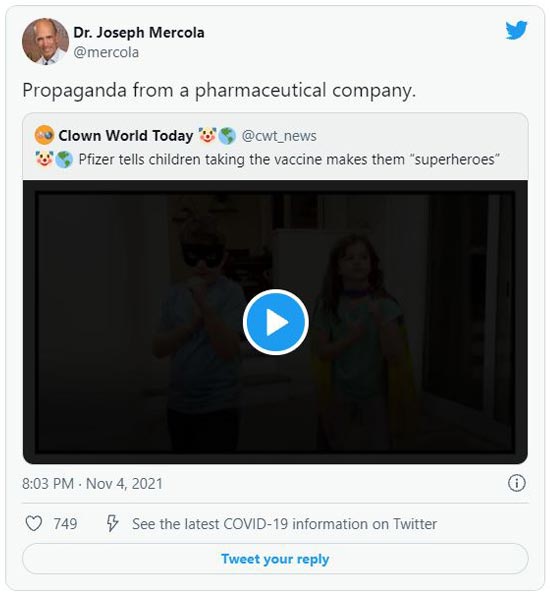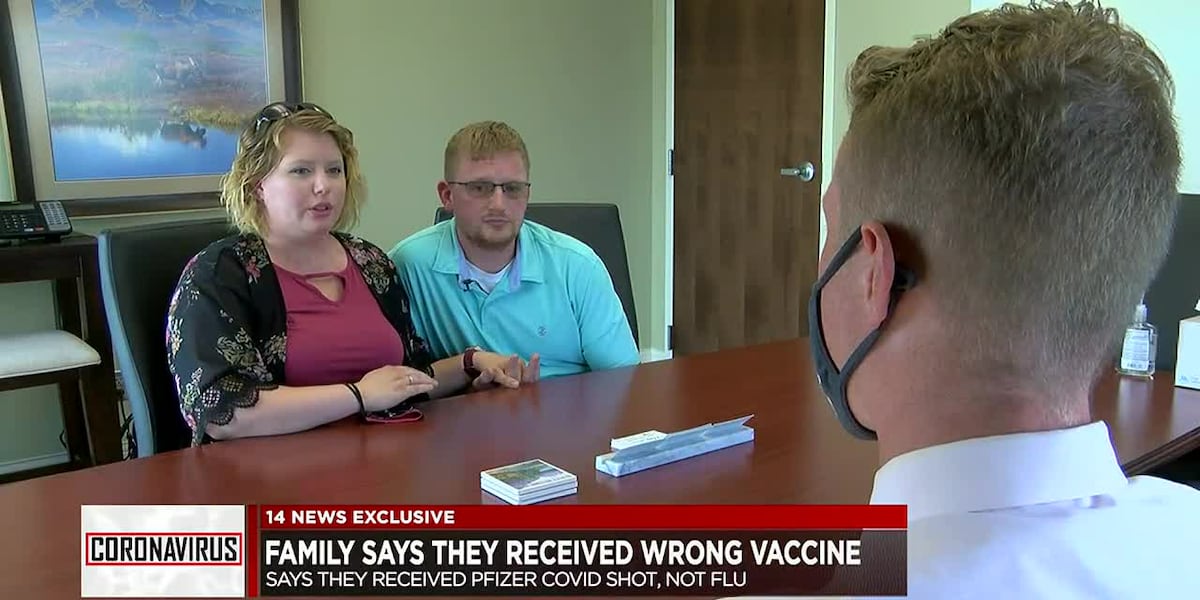FireFighterZero
Captain Zero!
Wasn't that Frankie?
I think you are off by 2 years.
My onkologist says 7 before the leukemia kicks in.
But then you are way smarter than him, of course, so I'll plan for less than 5 of course.

I'll take the red pill please... thank you!Once you start wandering down the conspiracy rabbit hole, there ain't no turning back. . .
“Revelations of poor practices at a contract research company helping to carry out Pfizer’s pivotal covid-19 vaccine trial raise questions about data integrity and regulatory oversight ...
As noted by Bill Bruckner for transparimed.org:2[F]or researchers who were testing Pfizer’s vaccine at several sites in Texas during that autumn, speed may have come at the cost of data integrity and patient safety ... Staff who conducted quality control checks were overwhelmed by the volume of problems they were finding.”
“Editors’ widespread failure to pick up on the story is deeply problematic. First and foremost, it lets the U.S. Food and Drug Administration off the hook for what appear to be severe lapses in regulatory oversight over this trial ... Where are the media outlets questioning the FDA about its oversight processes? Where are the politicians calling for an enquiry? ...
Second, it lets Pfizer off the hook for apparently failing to adequately oversee the operations of its subcontractor ... Where are the media outlets questioning Pfizer about its oversight and quality assurance processes? ...
So far, this story has been largely confined to the alternative news media. You’ll find a selection of video reports covering the whistleblower’s testimony in the sections below.Third, it undermines confidence in democratic institutions and public health bodies because it gives citizens ... the impression that mainstream media are deliberately ignoring a big story in order to avoid fueling vaccine hesitancy.”
“Jackson was a trained clinical trial auditor who previously held a director of operations position and came to Ventavia with more than 15 years’ experience in clinical research coordination and management.
Exasperated that Ventavia was not dealing with the problems, Jackson documented several matters late one night, taking photos on her mobile phone. One photo, provided to The BMJ, showed needles discarded in a plastic biohazard bag instead of a sharps container box.
Another showed vaccine packaging materials with trial participants’ identification numbers written on them left out in the open, potentially unblinding participants ... Jackson told The BMJ that drug assignment confirmation printouts were being left in participants’ charts, accessible to blinded personnel ...
In a recording of a meeting in late September 2020 between Jackson and two directors a Ventavia executive can be heard explaining that the company wasn’t able to quantify the types and number of errors they were finding when examining the trial paperwork for quality control. ‘In my mind, it’s something new every day,’ a Ventavia executive says. ‘We know that it’s significant.’
Ventavia was not keeping up with data entry queries, shows an email sent by ICON, the contract research organization with which Pfizer partnered on the trial. ICON reminded Ventavia in a September 2020 email: ‘The expectation for this study is that all queries are addressed within 24hrs.’
ICON then highlighted over 100 outstanding queries older than three days in yellow. Examples included two individuals for which ‘Subject has reported with Severe symptoms/reactions … Per protocol, subjects experiencing Grade 3 local reactions should be contacted. Please confirm if an UNPLANNED CONTACT was made and update the corresponding form as appropriate.’
According to the trial protocol a telephone contact should have occurred ‘to ascertain further details and determine whether a site visit is clinically indicated.’ Documents show that problems had been going on for weeks.
In a list of ‘action items’ circulated among Ventavia leaders in early August 2020, shortly after the trial began and before Jackson’s hiring, a Ventavia executive identified three site staff members with whom to ‘Go over e-diary issue/falsifying data, etc.’ One of them was ‘verbally counseled for changing data and not noting late entry,’ a note indicates.”
“In recent months Jackson has reconnected with several former Ventavia employees who all left or were fired from the company. One of them was one of the officials who had taken part in the late September meeting. In a text message sent in June the former official apologized, saying that ‘everything that you complained about was spot on.’
Two former Ventavia employees spoke to The BMJ anonymously for fear of reprisal and loss of job prospects in the tightly knit research community. Both confirmed broad aspects of Jackson’s complaint.
One said that she had worked on over four dozen clinical trials in her career, including many large trials, but had never experienced such a ‘helter skelter’ work environment as with Ventavia on Pfizer’s trial. ‘I’ve never had to do what they were asking me to do, ever,’ she told The BMJ. ‘It just seemed like something a little different from normal — the things that were allowed and expected’ ...
After Jackson left the company problems persisted at Ventavia, this employee said. In several cases Ventavia lacked enough employees to swab all trial participants who reported COVID-like symptoms, to test for infection. Laboratory confirmed symptomatic COVID-19 was the trial’s primary endpoint, the employee noted.
Such statements clearly fly in the face of statements made by world leaders, health authorities and the mainstream media. Most, like federal health minister for Australia, Greg Hunt, have claimed the COVID shots have undergone “rigorous, independent testing” to ensure they’re “safe, effective and manufactured to a high standard.”6(An FDA review memorandum released in August this year states that across the full trial swabs were not taken from 477 people with suspected cases of symptomatic COVID-19.) ‘I don’t think it was good clean data,’ the employee said of the data Ventavia generated for the Pfizer trial. ‘It’s a crazy mess.’”

Doshi stresses how utterly unscientific a process we’re now following. He also points out that doctors have an ethical duty to not recommend a treatment for which they have no data. Quoting from a 2020 article he co-wrote:10“The evidence we have comes from highly curated, industry-controlled press releases and journal publications. We are making big decisions based on limited, highly selected evidence. A compromised scientific process will lead to poor decisions, and it may set a bad precedent.”
“Data transparency is not a ‘nice to have.’ Claims made without access to the data — whether appearing in peer reviewed publications or in preprints without peer review — are not scientific claims.
“The point I am trying to make is very simple,” Doshi said. “The data from COVID vaccines are not available and won’t be available for years. Yet, we are not just ‘asking’ but ‘mandating’ millions of people to take these vaccines ... Without data, it’s not science.”Products can be marketed without access to the data, but doctors and professional societies should publicly state that, without complete data transparency, they will refuse to endorse COVID-19 products as being based on science.”
“... as a result of the recent catastrophic failures of regulatory agencies, politicians and pundits are talking about the same old ‘Regulatory Reform’ again. ‘Fill the regulatory agencies with honest people who won’t cave in to special interests.’ ‘Give them more money, more authority and more people.’
But my experience has shown that by concentrating all legislative, executive and judiciary authority in one regulatory agency just makes it easier for it to be corrupted by the industries it regulates.
I worked for the U.S. Environmental Protection agency for 30 years and lived through many cycles of ‘Regulatory Reform,’ doing the same ‘reforms’ over and over again and expecting different results.
Sanjour points out that regulators being captured by the parties they’re supposed to regulate is far more dangerous than having no regulatory agencies at all, because “capture gives industry the power of government.” Can there be any doubt that the FDA, as an agency captured by Big Pharma in general and Pfizer in particular, now wields power over the U.S. government?I’ve learned that the way to achieve true regulatory reform is to give regulatory agencies less money, less authority, fewer people but more intelligent regulations. The theme of this article is that by dispersing regulatory authority, rather than concentrating it, we would make corruption more difficult and facilitate more sensible regulation.”
“From my own experience with the U.S. EPA, even if an inspector finds a violation, this only triggers a lengthy complex process with many levels of warning, review, appeal, negotiation, and adjudication before any action is taken (or, more often, avoided),” Sanjour writes.12
“See the labyrinthine flow chart13 for an example of an agency enforcement procedure. It resembles a game of ‘chutes and ladders.’ Compare this with what happens when you park under a ‘No Parking’ sign. A policeman writes a ticket, and you can either pay the fine or tell it to the judge.
Regulatory Complexity Intentionally Hides LoopholesIf the EPA wrote the rules for parking violations, the officer would first have to determine if there were sufficient legal parking available at a reasonable cost and at a reasonable distance, and would then have to stand by the car and wait until the owner showed up so that he could negotiate a settlement agreement.”
“Regulatory agencies are created by Congress in order to control some powerful forces in society (usually corporations), which benefit society but which are also prone to abuse their power. The purpose of a regulatory agency is to allow the flow of benefits while straining out the abuse.
In order to do this, Congress gives administrators of regulatory agencies broad discretionary power to write regulations for industries for which they are responsible. The flaw in the system is that the administrator is appointed by the president ... Thus any discretionary authority given to a regulatory agency administrator is, in fact, given to the president of the United States to be used as the president sees fit ...
[R]egulatory agencies, by their very nature, can do little that doesn’t adversely affect business, especially big and influential business, and this disturbs a president’s repose.
The EPA, for instance, cannot write regulations governing the petroleum industry without the oil companies going to the White House screaming ‘energy crisis!’ ... When the FDA wants to thoroughly evaluate a new drug, the pharmaceutical company lets loose a public relations barrage about how the bureaucratic delays are costing lives.
Regulatory agency employees soon learn that drafting and implementing rules for big corporations means making enemies of powerful and influential people. They learn to be ‘team players,’ an ethic that permeates the entire agency without ever being transmitted through written or even oral instructions.
How Do We Fix It?People who like to get things done, who need to see concrete results for their efforts, don’t last long. They don’t necessarily get fired, but they don’t advance either; their responsibilities are transferred to others, and they often leave the agency in disgust. The people who get ahead are those clever ones with a talent for procrastination, obfuscation, and coming up with superficially plausible reasons for accomplishing nothing.”
Sanjour cites research showing that, by far, whistleblowers — who risk their jobs by speaking out — are the No. 1 fraud detection group, responsible for 19% of frauds being brought to light. The U.S. Securities and Exchange Commission, meanwhile, which exists to uncover corporate fraud, was responsible for just 7%.“… to remove discretionary judgment from the hands of the regulatory bureaucracy and place it in hands less susceptible to industry influence. The first thing I would suggest is to make use of people or institutions who have a vested interest in effective regulation as strong or stronger than the regulated community.”
“BP has admitted, between 2005 and 2010, to breaking U.S. environmental and safety laws and committing outright fraud and paid $373 million in fines. Between June 2007 and February 2010, BP refineries in Texas and Ohio accounted for 97% of the ‘egregious, willful’ violations handed out by the U.S. Occupational Safety and Health Administration. Yet none of this resulted in any oversight of the Deepwater Horizon oil rig that blew up ...
A third group that makes for a far better fraud detection system than federal regulators is the public. Organizations such as Citizens for Health and Environmental Justice teaches citizens how to get involved in the enforcement of regulations, and even more can be done in that regard.If BP had been required to carry a $10 billion insurance policy for an oil spill, I’m sure the insurance company would not have allowed the penny-pinching short cuts that the paid regulators allowed. If the laws are written intelligently, insurance companies can be a significant instrument for regulation.”
“A second reform I would suggest for removing discretionary authority from the regulatory bureaucracy is to make the rules as simple as possible and to place all appellate functions and consent agreements into the hands of the law courts, just as in our traffic cop example.
We Need to Return to the ConstitutionThis could be judicial courts or administrative law courts. Anything to take the discretionary authority away from the people who write and enforce the rules and provide one more barrier to industry influence.”
While making changes such as those proposed by Sanjour sounds simple enough, the political pushback would be enormous, and would have to be broken through, somehow. Legally, however, it would be a reasonably simple affair.“Thus, despite the wishes of the Founding Fathers, the executive branch now includes a great many regulatory agencies whose functions span all three branches of government. A large part of the corruption and inefficiency noted above flows from this fact,” Sanjour notes.

